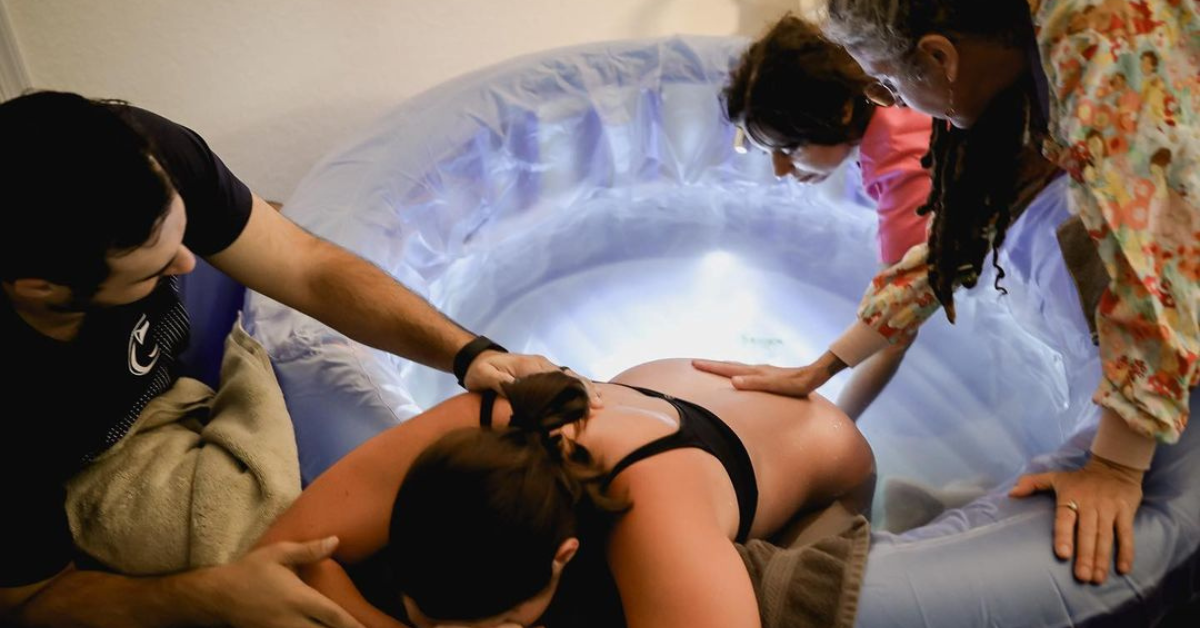Home births in the United States have been steadily increasing in recent years, with more and more expectant parents choosing this alternative option for delivering their babies. According to a report released by the US Centers for Disease Control and Prevention’s National Center for Health Statistics, there were over 50,000 home births in the country in 2021, representing a 12% increase from the previous year.
Various factors, including the COVID-19 pandemic and the desire for a more personalized and intimate birthing experience, have caused a surge in home births. New technologies and practices have further accelerated the shift towards home births, making at-home delivery a safe and viable option.
Understanding the Appeal of Home Births
Benefits of Home Births
Home births offer several advantages that attract expectant parents. One of the primary reasons for choosing a home birth is the desire for a more natural and low-intervention birthing experience.
Many parents believe that the home environment promotes a sense of comfort, familiarity, and relaxation, which can help facilitate a smoother labor process. Additionally, being in a familiar setting allows expectant parents to have more control over their birthing preferences and decisions.
The Role of Certified Nurse Midwives
Certified Nurse Midwives (CNMs) play a crucial role in home births. These healthcare professionals undergo training to comprehensively care for expectant mothers, offering prenatal, childbirth, and postpartum support.
CNMs have the necessary skills and expertise to monitor the progress of labor, offer emotional support, and ensure the well-being of both the mother and the baby. Their presence during home births provides a sense of security and reassurance for expectant parents.
Midwife360: A Leading Provider of Home Birth Services
One prominent provider of home birth services is Midwife360. We are dedicated to empowering individuals and families throughout their childbirth journey.
Midwife360’s team of highly skilled CNMs offers personalized and compassionate care, ensuring a safe and positive home birth experience. Their commitment to evidence-based practices and their focus on individualized care have made them a trusted choice for many expectant parents.
Factors Influencing the Rise of Home Births
Impact of the COVID-19 Pandemic
The COVID-19 pandemic has had a significant impact on the choices expectant parents make regarding birthing options. Many individuals are concerned about the virus exposure in a hospital setting, prompting them to consider alternatives like home births. The initial surge in home births between 2019 and 2020 corresponded with the rise of COVID-19 cases in the United States.
Personalized and Intimate Experience
For some expectant parents, the desire for a more personalized and intimate birthing experience is a driving factor in choosing home births. Home births allow families to create a comfortable and familiar environment where they can bond with their newborn without the distractions and protocols of a hospital setting. The ability to personalize the birthing environment, including the presence of loved ones, music, and lighting, contributes to a positive and empowering birth experience.
Increased Awareness and Education
In recent years, there has been a significant increase in the availability of information and resources about home births. Expectant parents now have access to a wealth of online forums, support groups, and educational materials that provide insights into the home birth process.
This increased awareness has helped dispel myths and misconceptions surrounding home births and has allowed individuals to make informed decisions based on their unique circumstances.
Important Considerations for Home Births
While home births offer numerous benefits, it is essential to consider certain factors before making this decision. Expectant parents should carefully evaluate their health status, previous medical history, and risk factors to determine if a home birth is a suitable option for them. It is crucial to consult with healthcare professionals, including CNMs and obstetricians, to assess the safety and feasibility of a home birth in each individual case.
Adequate Emergency Plan
Having a well-thought-out emergency plan is of utmost importance when opting for a home birth. Although home births typically proceed without complications, it is crucial to prepare for any unforeseen circumstances.
Expectant parents should ensure that they live within close proximity to a hospital and that both their midwife and partner are familiar with the route. Having a hospital overnight bag ready in case of an emergency can provide peace of mind.
Support System and Home Help
Home births require a reliable support system in place. It is crucial to enlist the help of a partner, family member, friend, or professional doula to assist with household chores and the care of other children or pets during the postpartum period. This support allows the birthing parent to focus on rest and recovery, ensuring a smooth transition into parenthood.
Post-Birth Evaluation and Care
After a home birth, it is essential to schedule a post-birth evaluation with a healthcare professional, typically within 24 to 48 hours. This evaluation ensures that both the mother and the baby are in good health.
The healthcare provider will conduct various assessments, including weighing the newborn, checking for signs of dehydration, evaluating breastfeeding, and screening for conditions such as jaundice. Prompt medical attention and follow-up care are crucial for the well-being of both the mother and the baby.
When to Seek Hospital Care
While the majority of home births proceed smoothly, there are instances when transferring to a hospital becomes necessary. It is essential to be aware of the signs that indicate the need for hospital care during a home birth.
Prolonged Labor
If active labor persists for more than 12 hours without significant progress, it may indicate the need for medical intervention. Prolonged labor can lead to exhaustion for the birthing parent and distress for the baby. In such cases, healthcare professionals will closely monitor the situation and consider options such as administering Pitocin to induce contractions or providing pain relief through epidural anesthesia.
Fetal Distress
If there are signs of fetal distress during labor, such as an abnormal heart rate or meconium-stained amniotic fluid, immediate medical attention is necessary. Fetal distress may indicate underlying complications that require specialized care available in a hospital setting.
Maternal Health Concerns
Certain maternal health conditions or risk factors may increase the need for hospital care during labor. These conditions include high blood pressure, gestational diabetes, placental abnormalities, or a history of previous cesarean deliveries. Healthcare professionals will assess the risks and benefits of a home birth in these situations and may recommend a hospital setting for safer management.
The Rise of Home Births
The rising popularity of home births in the United States reflects a growing desire among expectant parents for a more personalized and intimate birthing experience. At Midwife360, we guarantee the utmost safety and professionalism when conducting home births.
However, it is crucial for expectant parents to carefully consider their individual circumstances, seek appropriate prenatal care, and have a well-prepared emergency plan in place. By making informed decisions and having a supportive network, families can experience the joy and empowerment of a home birth while prioritizing the health and well-being of both the mother and the baby.





